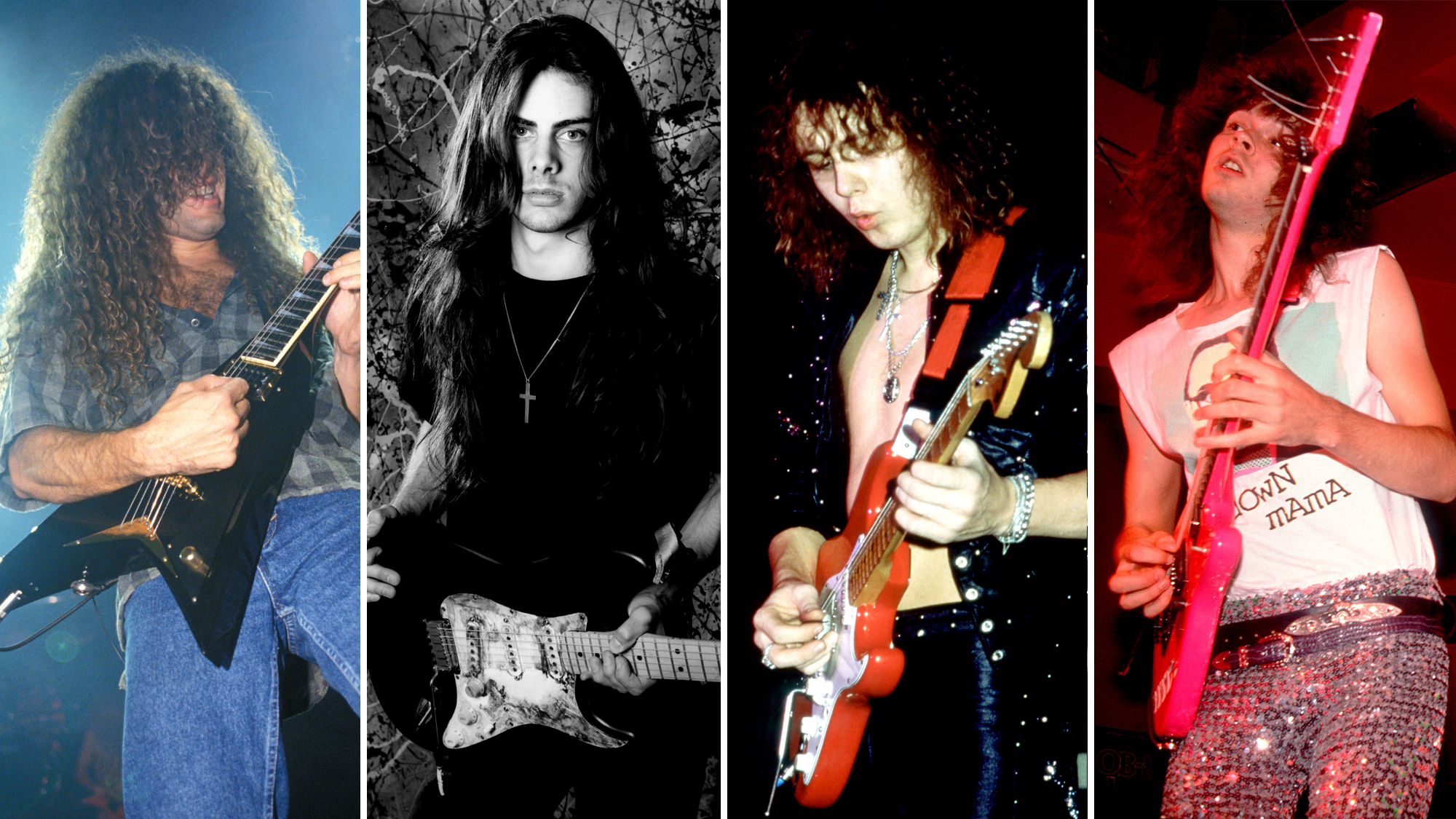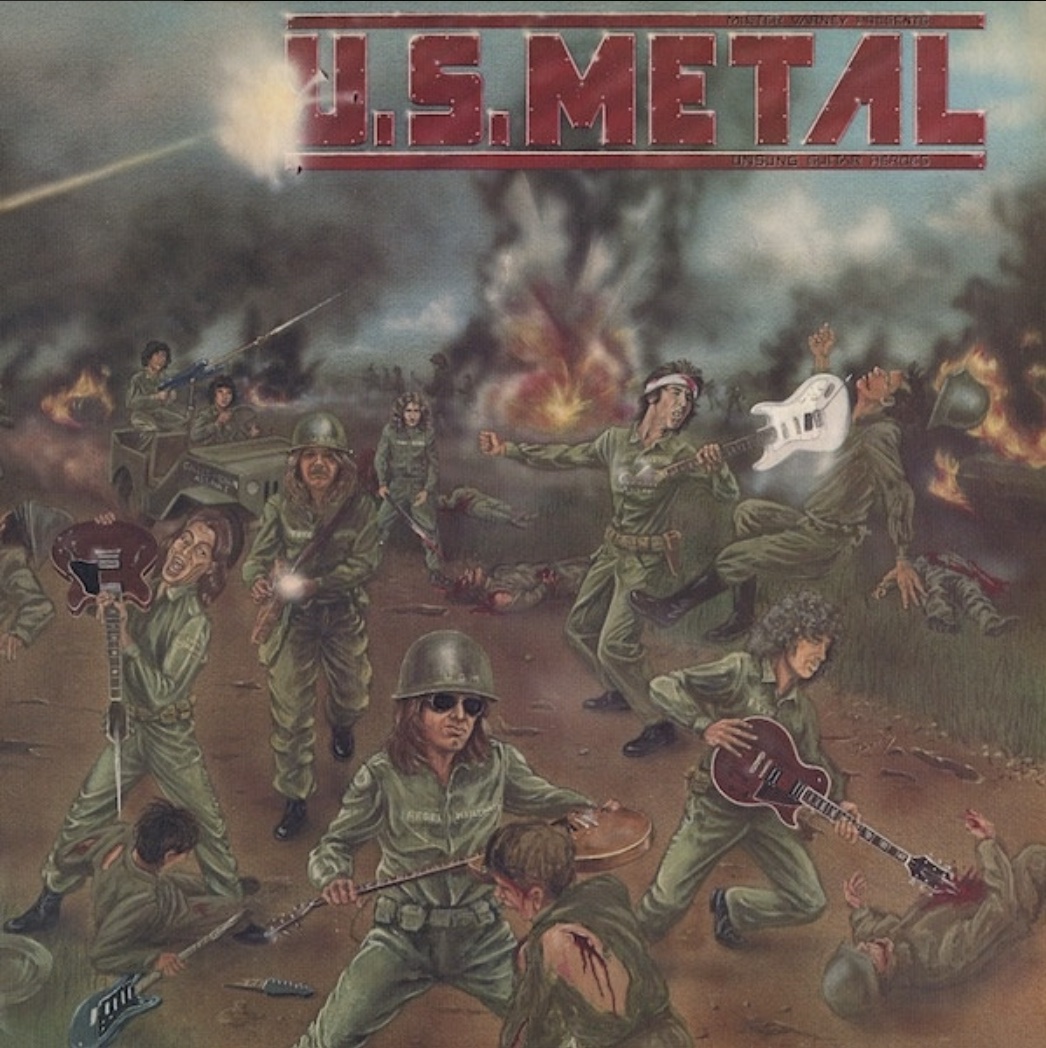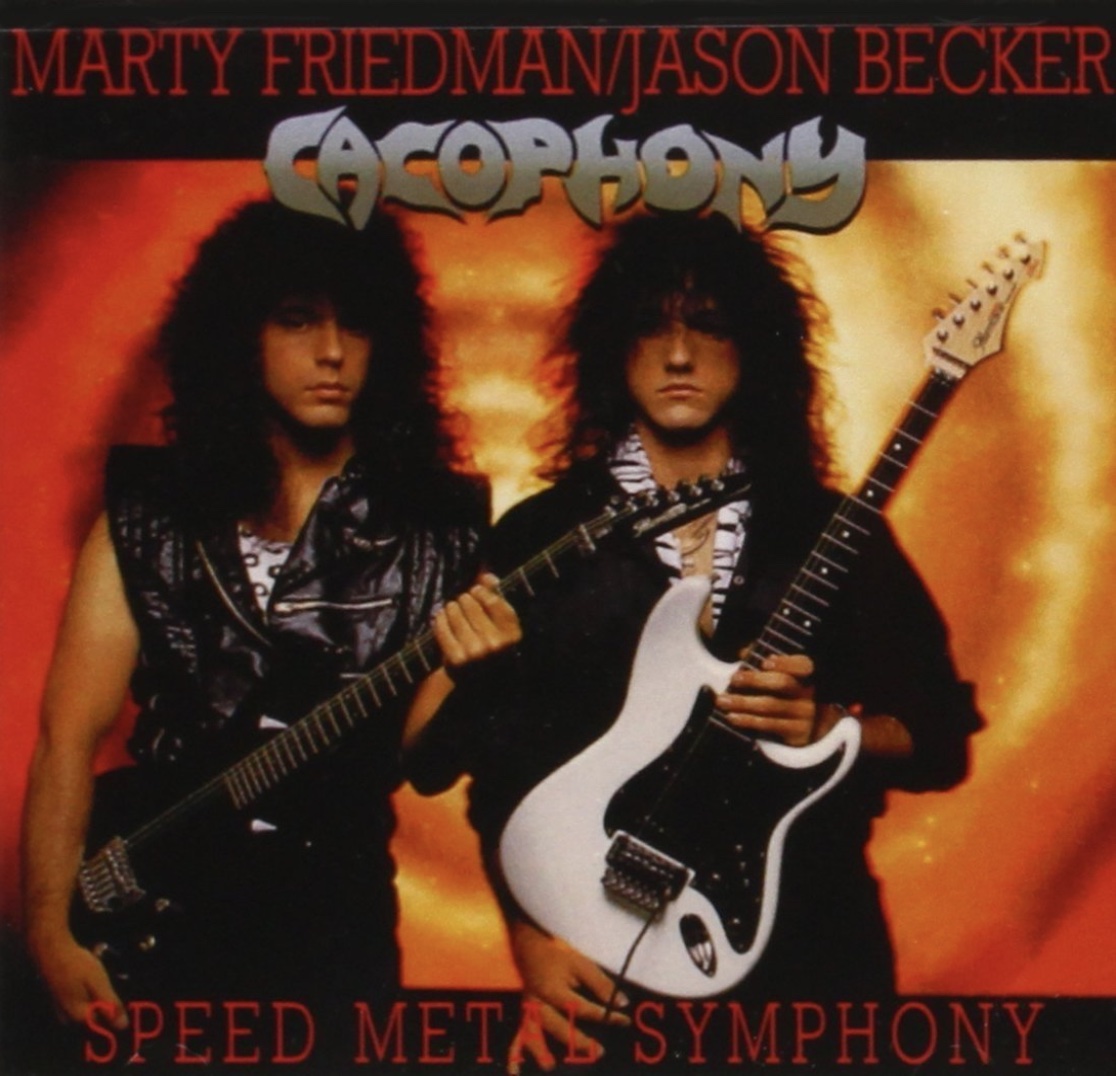“Some people equate shred with speed, but that's narrow-minded. The haters will hate because they can't do it themselves”: With Shrapnel Records, Mike Varney invented the technical guitar scene. He reflects on his legacy and the virtuosos of today
The technical guitar impresario reveals his thoughts on the now-dirty word status of 'shred', what he's always looked for in guitar players, and his favorite guitar brand (hint: it's probably not one you'd expect)

In the late 1980s, supercharged guitar theatrics were at their height. Most remember the soaring solos and rainbow-tinged guitars, backed by stacks of sizzling amps. But if we dial back the clock just a few years, the beginning of the '80s looked very different – and considerably less colorful.
Nevertheless, a lot of heat was boiling beneath the surface, and thankfully, Shrapnel Records founder Mike Varney was there to play point guard.
“I was a young guitar player, and the music industry in 1980 was not a very guitar-friendly environment,” Varney tells Guitar World. “Disco and new wave music were ruling the airwaves – some thought that heavy metal was dinosaur music and would never have a comeback.”
To combat the decline of guitar music, Varney sought to move from player to talent hunter: “I had several successes as a young guitar player, but in my search for someone to work with me, I determined that my value might be greater in finding a more talented group of guitar players and devoting my time to helping them to get more established.”
Varney was sharp-witted and had an eye for talent, but he also had the backbone to enact change, telling us, “My mission was straightforward: Jimi Hendrix was the guitar hero of the decade in the United States in the '60s, and Eddie Van Halen was the guitar hero of the decade in the '70s.
“People can argue about this all day, but that was my feeling going into 1980. I was excited that we were entering into a new decade of music, and I wanted it to be a decade of heavy rock and awesome guitar solos.”
As for how he transformed Shrapnel into a verifiable guitar institution, he says, “I received my degree in business administration, and one of the things that we studied was niche marketing. I decided that I wanted to be the first heavy metal-centric label in the United States and that the focus would be on guitarists of extraordinary ability. This was a niche within a niche.
Get The Pick Newsletter
All the latest guitar news, interviews, lessons, reviews, deals and more, direct to your inbox!
“Even though there were some signs that the glory days of guitar solos had gone, I wanted to hear more guitar solos.
“I figured there had to be some other people like me,” he continues. “I wasn't finding enough heavy rock records, and as a consumer, I was looking for the next guitar hero. As I tried to narrow the scope of my record label, it dawned on me that I could be the guy to discover the best new guitar players of the decade. I didn't have any competition I knew of, so it seemed like a great niche where I could dig in and do something I loved.”

Now 65, Varney can look back on a journey that began when he was 22 with pride. After all, the guitar scene as we know it today wouldn't look the same without Varney's efforts.
It would be easy to be boastful, but, despite his accomplishments, Varney reflects on his legacy with a measured approach.
“What I'm most proud of is that I was able to do this for over 35 years,” he says. “But I feel grateful more than proud. I'm so grateful I could do something I really liked for a long time. That's what means the most.”
How did you go about identifying talent back in the day?
I was looking for guitar players who wrote cool songs, played undeniably great, and looked like they could be stars of tomorrow
“I was looking for guitar players who wrote cool songs, played undeniably great, and looked like they could be stars of tomorrow. And, most importantly, guitarists who were driven and very serious about playing and advancing their careers. I wanted to give opportunities to players who were 'lifers' and wanted to play guitar as a vocation and not as a hobby.”
Did you imagine the shred era would escalate to such grand heights?
“I didn't ever want to put a ceiling on it, and I just took things one guitarist at a time. By 1989, I had records from Paul Gilbert, Bruce Bouillet, Marty Friedman, Vinnie Moore, Tony MacAlpine, Jason Becker, Richie Kotzen, Greg Howe, Michael Lee Firkins, Joey Tafolla, and David Chastain, as well as Yngwie Malmsteen's first record with Ron Keel and Steeler.
“By 1990, I felt that I had established Shrapnel as a premier guitar-oriented record label showcasing new guitarists of extraordinary ability. I imagined that it could become trendy, but I ended up finding more great guitar players than I expected to find.”
How do you measure the importance of Shrapnel within that scene?
“I'm not sure how important it was in the scheme of life, but it's important to me. I think it did help create the technical guitar playing scene. My United States distributor was doing very well with these records. The owner of the company had started a record label called Relativity. He told me several times after Steve Vai and Joe Satriani had such tremendous success that he saw how well his distribution company was doing with my releases.”
Marty Friedman has been vocal about his distaste for the term 'shredder'. And Jason Becker has said that while he feels differently now, he used to dislike it, too. What are your thoughts?
“To me, it's just a word. It depends on how someone says it. If someone is really into technical guitar playing and says that somebody shreds or is a shredder, that's the highest compliment. If someone is from the 'less is more' school, often less talented, and unable to play 'more', the term could probably be considered pejorative. But I hear it used more as a compliment.
Some of the best working guitar players came up through the shredding school and developed taste and professionalism
“Some people equate the term with speed, but that's a narrow-minded viewpoint. This usually means a guitar player excels at a very high level.”
Do you feel the shred era is depicted fairly and taken seriously?
“It is taken very seriously by people who have discipline/stick-to-it-iveness and seek the highest learning opportunities. Usually, the haters will hate because they can't do it themselves. There are plenty of great guitar players who are not shredders, but that doesn't mean that shredders can't be great guitar players. Some of the best working guitar players came up through the shredding school and developed taste and professionalism.
“Professionals can hear what is needed; they might be backing a pop artist, and you would never know they have it in them. It would be distasteful to shred over the top of a ballad in the pop genre. But I'd say Van Halen was one of the few exceptions of a band that lasted decades and also had pop hits with shredding. You don't see that much of that today.”

What makes a great guitarist, and how has that changed since the '80s?
“I don't know if it has changed at all over time. Even in the '80s shred years, the best guitar players didn't lack taste. There was a lot more than speed going on there with most of them. I think tone, feel, taste, and how a guitar player approaches soloing are among the most essential attributes. I was looking for guitar players who other guitar players would want to be like.
“Getting traction out there is nearly impossible if you don't have a strong work ethic. In addition to having all the attributes I mentioned, it helps a lot if the guitar player has a quality about them, a presence if you will, that compels somebody to want to watch them. You don't have to be a model; you have to be able to command attention. Sometimes, it's as simple as being committed and playing with everything you have, and I don't mean just speed.”
Which players do you feel are your finest discoveries?
“I can't really say which ones are my finest discoveries, and I think if you asked 40 guitar fans, they would not say the same person. I tried to screen these guitar players carefully, and if I recorded them, there was something about each one that I felt was compelling. I'm happy that many of the guitar players I worked with have moved on and have substantial careers as guitar players.”
What is the ultimate shred guitar/amp combo from that era?
“That's a tough question. A lot of our guitar players played Ibanez guitars. A Marshall, JCM800, or a 50-watt Marshall JMP were the go-to amps for many guitar players. And B.C. Rich, Kramer, and Carvin guitars were also popular back then. Not many of my artists were Gibson players, although Gibson happens to be my favorite guitar company.”
How do you view the technical guitar scene today?
“I started Shrapnel when I was 22 in 1980, and now I'm 65. It seems inevitable that a person's tastes will change over the years. I still love technical guitar playing, but I listen to many other kinds of music, too. It's tough for me to listen to many of the newer technical players out there today as either they are just rehashing things Shrapnel artists did 40 years ago, or they've gotten faster and are playing seven and eight-string guitars.
“I can appreciate some of that stuff, but I don't enjoy it, as a lot of it sounds as if its sole reason for existing is to facilitate crazier guitar playing. I'm not looking for anything faster than the fastest things we put out, or that has so many time changes in it that they appear to exist to try to make something sound as complex as possible. I think part of it is my age!”
Andrew Daly is an iced-coffee-addicted, oddball Telecaster-playing, alfredo pasta-loving journalist from Long Island, NY, who, in addition to being a contributing writer for Guitar World, scribes for Bass Player, Guitar Player, Guitarist, and MusicRadar. Andrew has interviewed favorites like Ace Frehley, Johnny Marr, Vito Bratta, Bruce Kulick, Joe Perry, Brad Whitford, Tom Morello, Rich Robinson, and Paul Stanley, while his all-time favorite (rhythm player), Keith Richards, continues to elude him.
“Around Vulgar, he would get frustrated with me because I couldn’t keep up with what he was doing, guitar-wise – Dime was so far beyond me musically”: Pantera producer Terry Date on how he captured Dimebag Darrell’s lightning in a bottle in the studio
“He ran home and came back with a grocery sack full of old, rusty pedals he had lying around his mom’s house”: Terry Date recalls Dimebag Darrell’s unconventional approach to tone in the studio












